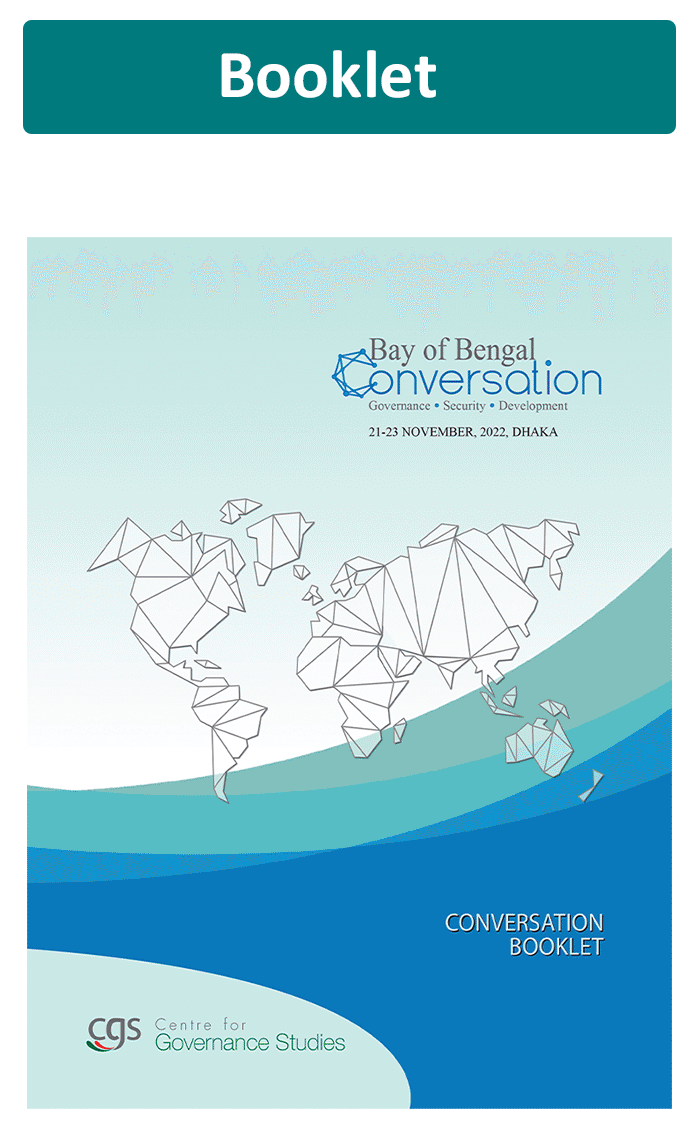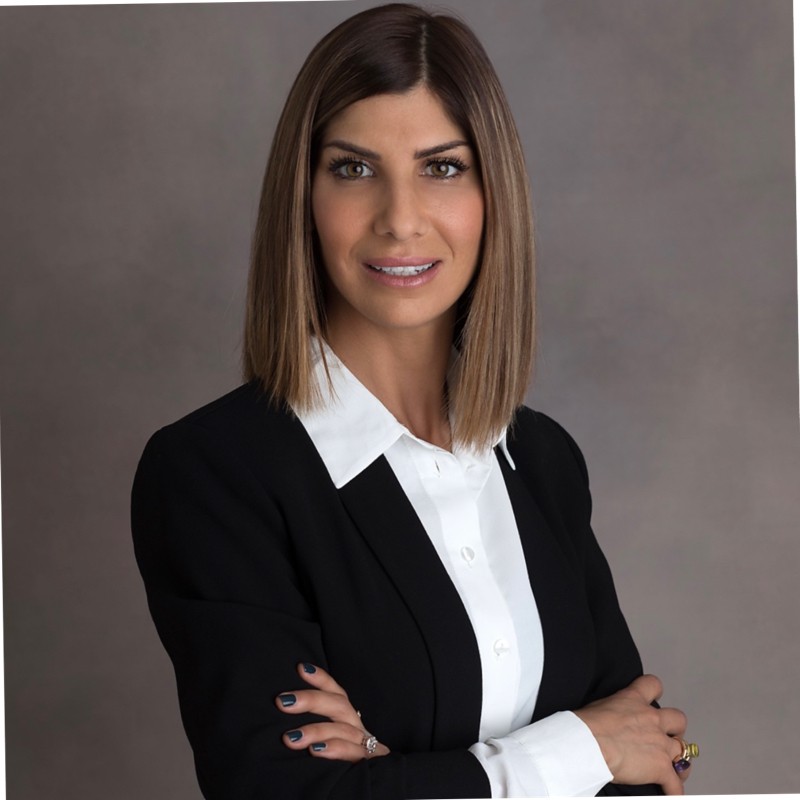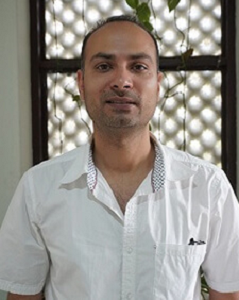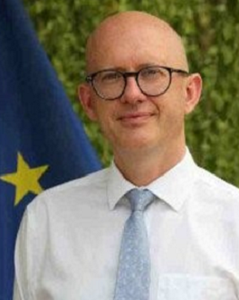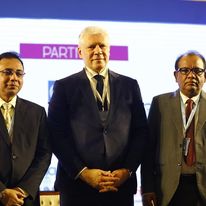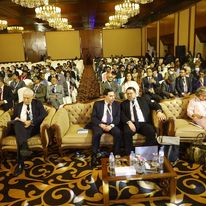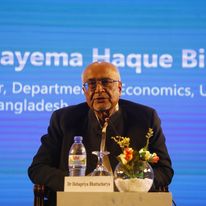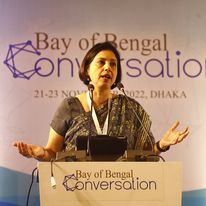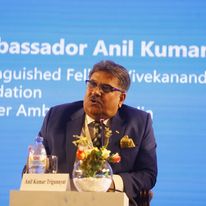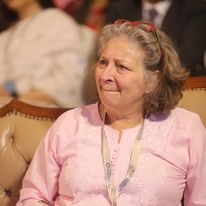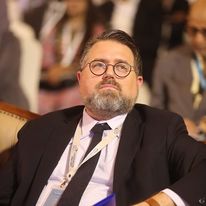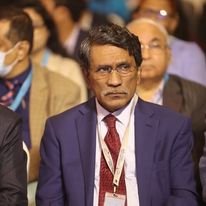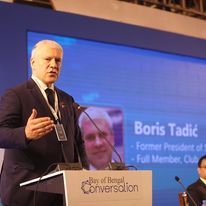Agenda_________
This year’s Bay of Bengal Conversation will feature a deep dive into contemporary issues divided into five key thematic pillars of conversation:
Situated at the confluence of the geographies of South Asia and Southeast Asia, the demographic, economic and security developments taking place in the Bay of Bengal region have significant implications for Asia and the global order. Security and stability is a sine qua non for economic cooperation. It is therefore imperative to collectively appraise the security architecture of the Bay to identify the prevailing as well as potential threats facing the region.
• How can a new paradigm of regional cooperation balance security concerns with economic imperatives, while respecting national sovereignty?
• What can be the centralized and inter-governmentalmechanisms – that often ignore or under-estimate economic implications - deal with decentralized security threats and emerging geopolitical crises in the region?
• What role can the extra-littoral countries and global powers such as the US and China play in shaping security and economic cooperation in the region?
• How can a new paradigm of regional cooperation balance security concerns with economic imperatives, while respecting national sovereignty?
• What can be the centralized and inter-governmentalmechanisms – that often ignore or under-estimate economic implications - deal with decentralized security threats and emerging geopolitical crises in the region?
• What role can the extra-littoral countries and global powers such as the US and China play in shaping security and economic cooperation in the region?
The Bay of Bengal region’s already high vulnerability to natural disasters such as storm surges, cyclones, floods is likely to exacerbate in frequency and severity due to climate change,with huge economic and security implications. Adverse climate change will increase population displacement and migration pressures and exacerbate risks of conflicts within and beyond the region. While some of the countries in the region have made considerable progress in their respective national strategies for disaster response, natural resource management and climate action, yet, the region lacks an integrated, effective cooperation and institutional framework to address these risks.
• How can the regional economies exploit existing complementarities to achieve successful outcomes in climate action and, disaster preparedness,taking into account the nexus between climate change, migration and conflicts?
• How can countries pool resources andincentivize investments to build resilience against climatic shocks and augment adaptation efforts?
• How can the region form a unified and coherent voice to garner international support for its climate change adaptation efforts?
• How can the regional economies exploit existing complementarities to achieve successful outcomes in climate action and, disaster preparedness,taking into account the nexus between climate change, migration and conflicts?
• How can countries pool resources andincentivize investments to build resilience against climatic shocks and augment adaptation efforts?
• How can the region form a unified and coherent voice to garner international support for its climate change adaptation efforts?
The Bay of Bengal region continues to suffer from connectivity and infrastructure deficits. Despite the strong advocacy by various country leaders for enhanced connectivity initiatives and push for speeding up the process of finalizing the Free Trade Agreement, the region have not so far made satisfactory progress in this area.
• How can the region overcome its connectivity deficits, striking a balance between economic imperatives and security and sovereignty concerns?
• How can multi-stakeholder dialogues, private sector engagements and people-to-people contactsstrengthen transport, transit and trade facilitation in the region?
• How can the region exploit and take advantage of extra-regional initiatives – such as the ASEAN and the Belt and Road Initiative (BRI) and the Indo-Pacific Strategy (IPS) – to foster regional connectivity and promote trade, investment and inclusive growth?
• How can the region overcome its connectivity deficits, striking a balance between economic imperatives and security and sovereignty concerns?
• How can multi-stakeholder dialogues, private sector engagements and people-to-people contactsstrengthen transport, transit and trade facilitation in the region?
• How can the region exploit and take advantage of extra-regional initiatives – such as the ASEAN and the Belt and Road Initiative (BRI) and the Indo-Pacific Strategy (IPS) – to foster regional connectivity and promote trade, investment and inclusive growth?
The countries in the Bay of Bengal region continue to face common development challenges of persistent poverty, widening inequality and growing instability. Prospects for inclusive growth will depend heavily on the region’s ability to address the shared fundamental development issues. Improvements in poverty alleviation, health, technology and equity will contribute to more inclusive economic growth and achieving sustainable development goals (SDGs) and assist the Bay of Bengal region to pay a key role in the global economy.
• How persistent poverty and rising inequality pose a risk to regional peace and stability?
• What lessons the region can draw from neighbouring East and South-East Asian economies to accelerate poverty reduction, tame inequality and promote more inclusive growth?
• What common policies and strategies the region can pursue to promote inclusive growth,taking into account the comparative advantages and complementarities of regionaleconomies?
• How can the countries work together towards addressing the unconventional and unforeseen threats posed by Covid-19?
• How persistent poverty and rising inequality pose a risk to regional peace and stability?
• What lessons the region can draw from neighbouring East and South-East Asian economies to accelerate poverty reduction, tame inequality and promote more inclusive growth?
• What common policies and strategies the region can pursue to promote inclusive growth,taking into account the comparative advantages and complementarities of regionaleconomies?
• How can the countries work together towards addressing the unconventional and unforeseen threats posed by Covid-19?
The nature of threats facing the Bay of Bengal region today requires a different approachthat can blend in with its heterogeneous and complex economic environment and is based on felt needs and perceived benefits.Traditional state-led model of regional cooperation is increasingly inadequate and ineffective in addressing the multitude of development and security challenges confronting the region. There is a clear need for inclusive, bottom-up and multi-stakeholder approach to revitalize, and optimize the benefits of regional cooperation.
• What is a Bay of Bengal framework for regional cooperation?
• What roles regional institutions and think-tanks can play in identifying issues andsetting the agenda for regional, multi-stakeholder dialogues?
• How can a new framework of regional dialogue promote inclusivity and effectiveness in strengthening cooperation?
• What is a Bay of Bengal framework for regional cooperation?
• What roles regional institutions and think-tanks can play in identifying issues andsetting the agenda for regional, multi-stakeholder dialogues?
• How can a new framework of regional dialogue promote inclusivity and effectiveness in strengthening cooperation?
Partners

Sponsors

Events_________
Monday November 21
Time: 09:30 – 10:00
Venue: Grand Ballroom
INAUGURAL SESSION
Time: 11:00 – 11:50
Venue: Grand Ballroom
PLENARY SESSION
Session Title: The Integration Agenda A Roadmap Towards SDGs
Time: 11:50 – 12:40
Venue: Grand Ballroom
PLENARY SESSION
Session Title: Untangling the myriad of multilateral frameworks in the Indo-Pacific
Time: 12:40 – 13:10
Venue: Grand Ballroom
SOUNDING BOARD
Session Title: Forest for the Trees: the Unsung Role of Nature Conservation in Climate Adaptation and Mitigation
Time: 13:10 – 13:40
Venue: Grand Ballroom
IN CONVERSATION
Boris Tadic
Former President, Serbia Full Member, Club de Madrid
Time: 13:40 – 14:40
Venue: Surma
CONVERSATION OVER LUNCH
Session Title: The Red Signal to Green Governance
Time: 13:40 – 14:40
Venue: Meghna
CONVERSATION OVER LUNCH
Technology: Finding the Future’s Footprint
Time: 13:40 – 14:40
Venue: Chitra
CONVERSATION OVER LUNCH
Rediscovering the South Asian Identity
Time: 14:40 – 14:50
Venue: Grand Ballroom
MINISTERIAL SPEECH
Asaduzzaman Khan MP, Minister of Home Affairs, Bangladesh
Time: 14:50 – 15:00
Venue: Grand Ballroom
SPEED TALKS
Suhasini Haider, National Editor and Diplomatic Affairs Editor The Hindu, India
Time: 15:00 – 15:15
Venue: Grand Ballroom
GUEST OF HONOR
Dr. A K Abdul Momen MP, Minister of Foreign Affairs, Bangladesh
Time: 15:15 – 16:00
Venue: Grand Ballroom
PLENARY SESSION
Democracy X.0: Mandate of the Mass
Time: 16:00 – 16:20
Venue: Grand Ballroom
SPEED TALKS
Bangladesh-India Relations: Too Close for Comfort?
Time: 16:20 – 17:05
Venue: Grand Ballroom
PLENARY SESSION
100 Seconds to Midnight: Converging Crises Across the World
Time: 09:30 – 10:00
Venue: Grand Ballroom
INAUGURAL SESSION
Time: 11:00 – 11:50
Venue: Grand Ballroom
PLENARY SESSION
Session Title: The Integration Agenda A Roadmap Towards SDGs
Time: 11:50 – 12:40
Venue: Grand Ballroom
PLENARY SESSION
Session Title: Untangling the myriad of multilateral frameworks in the Indo-Pacific
Time: 12:40 – 13:10
Venue: Grand Ballroom
SOUNDING BOARD
Session Title: Forest for the Trees: the Unsung Role of Nature Conservation in Climate Adaptation and Mitigation
Time: 13:10 – 13:40
Venue: Grand Ballroom
IN CONVERSATION
Boris Tadic
Former President, Serbia Full Member, Club de Madrid
Time: 13:40 – 14:40
Venue: Surma
CONVERSATION OVER LUNCH
Session Title: The Red Signal to Green Governance
Time: 13:40 – 14:40
Venue: Meghna
CONVERSATION OVER LUNCH
Technology: Finding the Future’s Footprint
Time: 13:40 – 14:40
Venue: Chitra
CONVERSATION OVER LUNCH
Rediscovering the South Asian Identity
Time: 14:40 – 14:50
Venue: Grand Ballroom
MINISTERIAL SPEECH
Asaduzzaman Khan MP, Minister of Home Affairs, Bangladesh
Time: 14:50 – 15:00
Venue: Grand Ballroom
SPEED TALKS
Suhasini Haider, National Editor and Diplomatic Affairs Editor The Hindu, India
Time: 15:00 – 15:15
Venue: Grand Ballroom
GUEST OF HONOR
Dr. A K Abdul Momen MP, Minister of Foreign Affairs, Bangladesh
Time: 15:15 – 16:00
Venue: Grand Ballroom
PLENARY SESSION
Democracy X.0: Mandate of the Mass
Time: 16:00 – 16:20
Venue: Grand Ballroom
SPEED TALKS
Bangladesh-India Relations: Too Close for Comfort?
Time: 16:20 – 17:05
Venue: Grand Ballroom
PLENARY SESSION
100 Seconds to Midnight: Converging Crises Across the World
Tuesday November 22
Time: 09:00 – 09:50
Venue: Grand Ballroom
PLENARY SESSION
Session Title: From Papyrus to Python: Modernizing Education for Future Generations
Time: 09:50 – 10:40
Venue: Grand Ballroom
PLENARY SESSION
Session Title: 8 + 2 TenT: the South Asian States, China and USA
Time: 10:40 – 10:55
Venue: Grand Ballroom
SPEED TALKS
Session Title: Are we rightly managing and sharing the fish in the Bay? The transboundary fishery crisis in the Bay of Bengal?
Time: 11:25 – 12:15
Venue: Grand Ballroom
PLENARY SESSION
Session Title: Development vs. Democracy: Roadmap to Development and Inclusive Growth
Time: 12:15 – 13:05
Venue: Grand Ballroom
PLENARY SESSION
Session Title: New Grammar of Geopolitics
Title: 13:05 – 13:30
Venue: Grand Ballroom
SOUNDING BOARD
Session Title: Addressing the Dilemma of Labor Skill Development in South Asia
Title: 13:30 – 14:30
Venue: Surma
CONVERSATION OVER LUNCH
Session Title: Rise of New Media: Fighting Against Fake News
Time: 13:30 – 14:30
Venue: Meghna
CONVERSATION OVER LUNCH
Session Title: Nationalism vs. Multilateralism: Making the world a Multipolar Megacity
Time: 13:30 – 14:30
Venue: Chitra
CONVERSATION OVER LUNCH
Session Title: Role of Education in Alleviating Poverty
Time: 14:30 – 15:00
Venue: Grand Ballroom
SOUNDING BOARD
Session Title: Evaluating the state of trade and connectivity in South and East Asia
Time: 15:00 – 15:50
Venue: Grand Ballroom
PLENARY SESSIONS
Session Title: Creating a Bottom-up Demand for Good Governance
Time: 15:50 – 16:40
Venue: Grand Ballroom
PLENARY SESSIONS
Session Title: Refugees of the times: Past Precedence for the Ailing Present
Time: 17:10 – 18:00
Venue: Grand Ballroom
PLENARY SESSION
Session Title: Net Zero: The South Asia Model
Title: 18:00 – 18:10
Venue: Grand Ballroom
MINISTERIAL SPEECH
Nurul Islam Sujan MP
Minister of Railway, Bangladesh
Time: 18:10 – 18:20
Venue: Grand Ballroom
SPEED TALKS
Key to Success in Human Life
Sufi Mizanur Rahman
Chairman, PHP Family, and Honorary Consul of Indonesia
Time: 18:20 – 19:10
Venue: Grand Ballroom
PLENARY SESSION
Session Title: Soliloquy of the Sea: Tough Challenges in Rough Waters
Time: 19:10 – 19:40
Venue: Grand Ballroom
SOUNDING BOARD
Session Title: The Interplay of the Global North and the Global South in Geopolitics and Development
Time: 19:40 – 19:50
Venue: Grand Ballroom
MINISTERIAL SPEECH
Md. Tajul Islam MP
Minister of Local Government and Rural Development, Bangladesh
Time: 19:50 – 20:40
Venue: Grand Ballroom
PLENARY SESSION
Session Title: Lessons From the Lockdown: Impact of COVID 19 Measures on Economy and Society
Time: 20:40 – 21:00
IN CONVERSATION
Dr. Nizam Uddin Ahmed
Vice Chairman GAVI CSO Steering Committee
Dr. Mohammad Mainul Islam
Professor of Population Sciences University of Dhaka, Bangladesh (Moderator)
Time: 21:00 – 22:30
Venue: Surma
CONVERSATION OVER DINNER
Session Title: The Sun Rises in the East: South Asian Culture, Art and Cinema
Time: 21:00 – 22:30
Venue: Meghna
CONVERSATION OVER DINNER
Session Title: Digital Rights for the Digital Age
Time: 21:00 – 22:30
Venue: Chitra
CONVERSATION OVER DINNER
Session Title: Role of the Individual in Combating Climate Change
Time: 09:00 – 09:50
Venue: Grand Ballroom
PLENARY SESSION
Session Title: From Papyrus to Python: Modernizing Education for Future Generations
Time: 09:50 – 10:40
Venue: Grand Ballroom
PLENARY SESSION
Session Title: 8 + 2 TenT: the South Asian States, China and USA
Time: 10:40 – 10:55
Venue: Grand Ballroom
SPEED TALKS
Session Title: Are we rightly managing and sharing the fish in the Bay? The transboundary fishery crisis in the Bay of Bengal?
Time: 11:25 – 12:15
Venue: Grand Ballroom
PLENARY SESSION
Session Title: Development vs. Democracy: Roadmap to Development and Inclusive Growth
Time: 12:15 – 13:05
Venue: Grand Ballroom
PLENARY SESSION
Session Title: New Grammar of Geopolitics
Title: 13:05 – 13:30
Venue: Grand Ballroom
SOUNDING BOARD
Session Title: Addressing the Dilemma of Labor Skill Development in South Asia
Title: 13:30 – 14:30
Venue: Surma
CONVERSATION OVER LUNCH
Session Title: Rise of New Media: Fighting Against Fake News
Time: 13:30 – 14:30
Venue: Meghna
CONVERSATION OVER LUNCH
Session Title: Nationalism vs. Multilateralism: Making the world a Multipolar Megacity
Time: 13:30 – 14:30
Venue: Chitra
CONVERSATION OVER LUNCH
Session Title: Role of Education in Alleviating Poverty
Time: 14:30 – 15:00
Venue: Grand Ballroom
SOUNDING BOARD
Session Title: Evaluating the state of trade and connectivity in South and East Asia
Time: 15:00 – 15:50
Venue: Grand Ballroom
PLENARY SESSIONS
Session Title: Creating a Bottom-up Demand for Good Governance
Time: 15:50 – 16:40
Venue: Grand Ballroom
PLENARY SESSIONS
Session Title: Refugees of the times: Past Precedence for the Ailing Present
Time: 17:10 – 18:00
Venue: Grand Ballroom
PLENARY SESSION
Session Title: Net Zero: The South Asia Model
Title: 18:00 – 18:10
Venue: Grand Ballroom
MINISTERIAL SPEECH
Nurul Islam Sujan MP
Minister of Railway, Bangladesh
Time: 18:10 – 18:20
Venue: Grand Ballroom
SPEED TALKS
Key to Success in Human Life
Sufi Mizanur Rahman
Chairman, PHP Family, and Honorary Consul of Indonesia
Time: 18:20 – 19:10
Venue: Grand Ballroom
PLENARY SESSION
Session Title: Soliloquy of the Sea: Tough Challenges in Rough Waters
Time: 19:10 – 19:40
Venue: Grand Ballroom
SOUNDING BOARD
Session Title: The Interplay of the Global North and the Global South in Geopolitics and Development
Time: 19:40 – 19:50
Venue: Grand Ballroom
MINISTERIAL SPEECH
Md. Tajul Islam MP
Minister of Local Government and Rural Development, Bangladesh
Time: 19:50 – 20:40
Venue: Grand Ballroom
PLENARY SESSION
Session Title: Lessons From the Lockdown: Impact of COVID 19 Measures on Economy and Society
Time: 20:40 – 21:00
IN CONVERSATION
Dr. Nizam Uddin Ahmed
Vice Chairman GAVI CSO Steering Committee
Dr. Mohammad Mainul Islam
Professor of Population Sciences University of Dhaka, Bangladesh (Moderator)
Time: 21:00 – 22:30
Venue: Surma
CONVERSATION OVER DINNER
Session Title: The Sun Rises in the East: South Asian Culture, Art and Cinema
Time: 21:00 – 22:30
Venue: Meghna
CONVERSATION OVER DINNER
Session Title: Digital Rights for the Digital Age
Time: 21:00 – 22:30
Venue: Chitra
CONVERSATION OVER DINNER
Session Title: Role of the Individual in Combating Climate Change
Wednesday November 23
Time: 09:00 – 09:50
Venue: Grand Ballroom
PLENARY SESSION
Session Title: The Shackled Privilege of Patriarchy and the Myth of Women’s Empowerment in South Asia
Time: 09:50 – 10:10
Venue: Grand Ballroom
PLENARY SESSION
Session Title: Curated Growth: The Role of ODA and PTA in Shaping South Asian Economies
Time: 11:00 – 11:10
Venue: Grand Ballroom
CLOSING
Zillur Rahman
Executive Director Centre for Governance Studies and Chair, Bay of Bengal Conversation
Time: 09:00 – 09:50
Venue: Grand Ballroom
PLENARY SESSION
Session Title: The Shackled Privilege of Patriarchy and the Myth of Women’s Empowerment in South Asia
Time: 09:50 – 10:10
Venue: Grand Ballroom
PLENARY SESSION
Session Title: Curated Growth: The Role of ODA and PTA in Shaping South Asian Economies
Time: 11:00 – 11:10
Venue: Grand Ballroom
CLOSING
Zillur Rahman
Executive Director Centre for Governance Studies and Chair, Bay of Bengal Conversation


